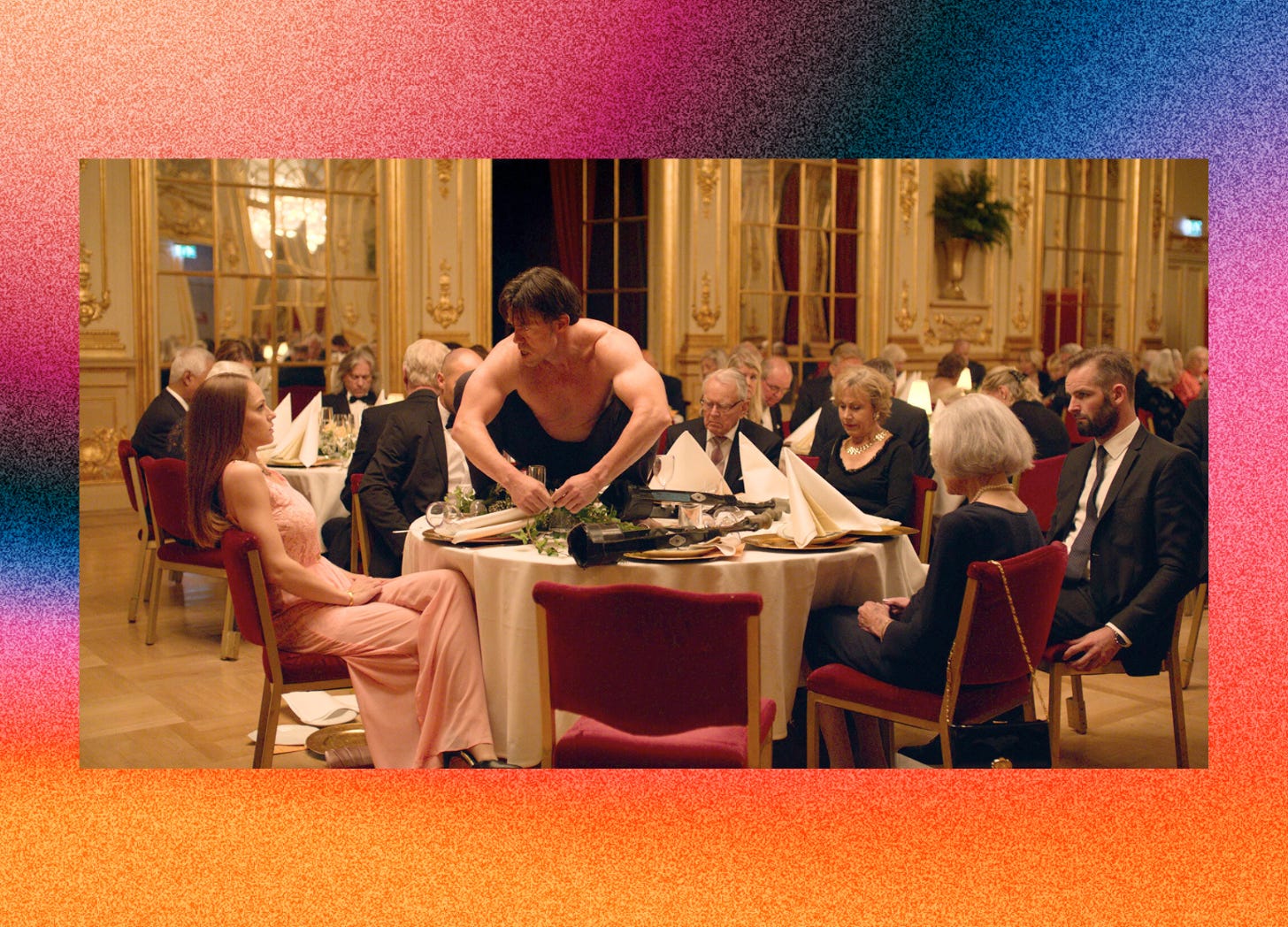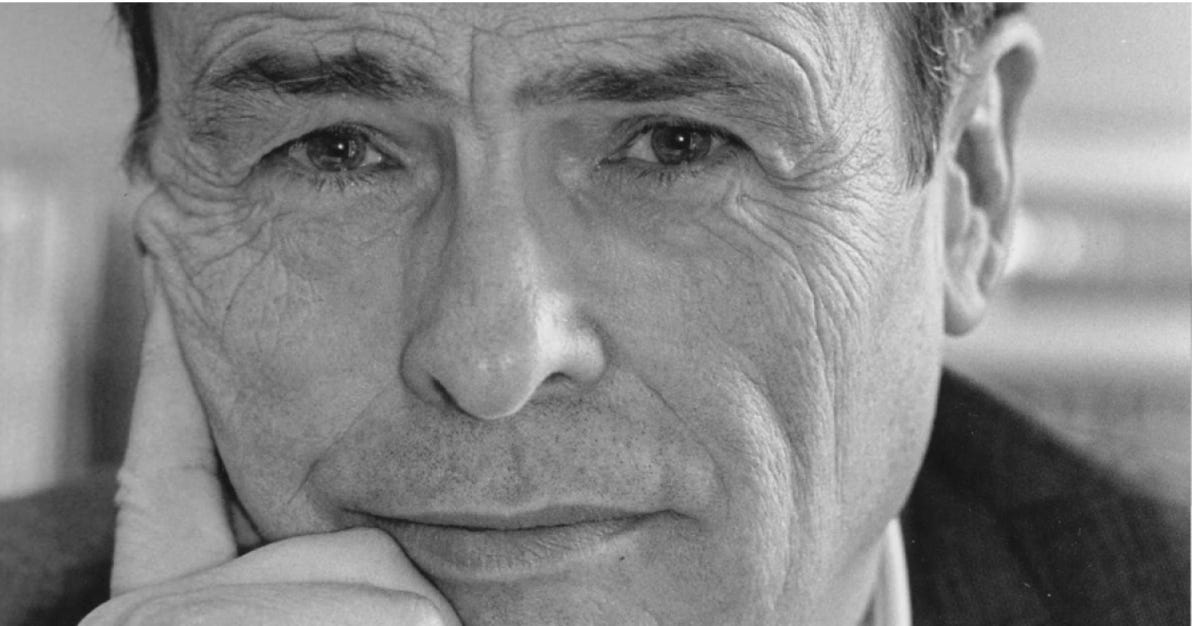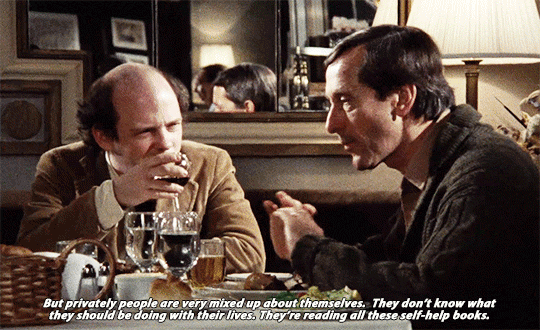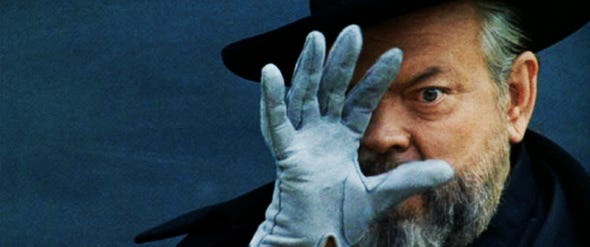taste matters but can you afford it?
Developing refined aesthetic judgment costs way more than anyone wants to admit.
I was in Waterstones, wrestling with the moral dilemma of whether to buy my nephew another Captain Underpants book (a true work of art, I assure you), when I overheard a conversation that felt ripped from a think piece. Two women, radiating a certain cultured glow, were deep in discussion about an article — one I'd clearly missed — proclaiming "taste" as humanity's last stand against the impending AI-generated content tsunami. One mentioned ditching Netflix for something called MUBI, "films for people with discerning taste," she declared, with the air of someone who'd just discovered a secret society. The other chimed in about a new book club, dedicated to "challenging literature”.
They were genuinely thrilled, mapping out weekend itineraries of gallery hops and independent bookstore crawls. And, I'll admit, it sounded fantastic: connecting with art, finding your tribe, supporting creative endeavors. But even as their enthusiasm was infectious, a little eyebrow of suspicion started to creep up on my forehead. "Discerning," "challenging," "elevated"—these words were tossed around with an almost casual authority.
Which begs the question: if "taste" is our great human differentiator, what are the underlying conditions that truly allow it to flourish?
everyone suddenly thinks good taste will save us from ai mediocrity
My timeline's been absolutely thick with this whole discourse about aesthetic judgment being the next “it girl” — Substack writers delivering their cultural takes with the gravity of papal announcements, commentators treating their refined sensibilities like they're wielding Excalibur against the forces of algorithmic evil.
This bubbling discourse, this fervent belief in the salvation of savour, has found its most prominent articulation in pieces like Nitin Nohria's Atlantic essay, "Good Taste Is More Important Than Ever". Nohria champions taste as "the instinct that tells us not just what can be done, but what should be done." The whole argument goes that we're drowning in AI content — technically fine but spiritually vacant — and our ability to pick the actually good stuff becomes this rare, valuable skill. He brings up Steve Jobs and those iPhone reveals, making the case that while AI can mimic and remix endlessly, it lacks the lived experience and cultural intuition that creates real style. It can't feel its way to the right choice because, well, it can't feel at all.
Nohria isn't just saying taste is a nice-to-have. He's declaring it an "existential necessity" for leaders, a competitive advantage, even an ethical imperative. Good taste, he implies, is the filter through which we avoid amplifying biases and steer clear of the "offensive" in a world where AI can effortlessly produce garbage. He even lays out a three-step program for its cultivation: exposure (read great literature! visit great buildings!), curation (discriminate! understand why you prefer what you do!), and reflection (evolve your sensibilities!). It's a compelling vision, neat as a perfectly folded napkin, suggesting that taste isn't some mystical, innate gift, but a learnable skill, a muscle to be flexed.
The cultural consensus, then, is a resounding YES! to Nohria's premise. We're consistently told that in this brave new world, the discerning eye, the sophisticated palate, the refined ear, these are our superpowers. We see it in the burgeoning "curation economy," where influencers aren't just selling products but selling lifestyles built on impeccable choices. We see it in individual-led email newsletters where popular writers hand-pick content in “things i’m reading/eating/buying” weeklies. Even in the realm of AI itself, we see it in prompt engineering where "taste" dictates the quality of the output.
The message, in my view, is clear: good taste is about signaling status, asserting identity, and ultimately, navigating the overwhelming noise.
And that’s almost aspirational, isn't it? This idea that our squishy, messy, utterly human judgment is the ultimate weapon. And part of me genuinely wants to believe it—to embrace this vision of eclectic human minds triumphing over machine-made creations. But even as I nod along, something feels distinctly off.
I feel a growing discomfort with the very ease of this argument, particularly when considering how taste is developed, who gets to define it, and who truly stands to gain from its elevated status.
So let’s talk about it.
here's what developing refined taste actually costs in real money
My simmering ickiness, evidently, has a concrete foundation. What we’ve come to champion as refined aesthetic judgment is overwhelmingly, unequivocally, a direct byproduct of economic capital, sustained educational advantage, and direct proximity to elite cultural institutions.
The numbers lay this bare: A year at Juilliard can set you back over $88,000, and RISD isn't far behind at over $83,000, including tuition and fees. Meanwhile, a public option like Wayne State College rings in at just over $17,500 annually. Which means, you aren’t really paying education. You’re paying an "elite cultural education premium" , filtering who gets to even learn how to make or appreciate culture, effectively limiting the perspectives that shape our collective definition of "high art".
Beyond education, actually engaging with culture is often a luxury. Data from 2024-2025 reveals that over half of adults earning $200,000 or more attended live arts events, compared to a mere 16.2% of those making under $25,000. It's no shock, then, that individuals in the UK's most deprived areas were 64% less likely to engage culturally. And where cultural happenings tend to cluster? Expensive urban centers. This concentration drives up property values, pushing out artists and lower-income residents, making true cultural access a geographic and financial impossibility for many. Over 60% of people reported in March 2023 that the rising cost of living was already shrinking their ability to attend cultural events. Culture, indeed, often comes with a VIP rope, and it's made of cash.
Then there are the gatekeepers – the folks deciding what's seen, heard, and celebrated. The leadership across cultural institutions, from art museums to film studios and publishing houses, is remarkably homogenous. POC employees make up only 9%1 of art museum boards, and a staggering 87% of artists in prominent U.S. museum collections are male, with 85% being white. Work acquisitions by Black American women make up a dismal 0.5% between 2008 and 2020. In film criticism, 77.8% of reviews are by men, and 82% by white critics. When a narrow demographic controls what gets highlighted, it becomes a taste-making echo chamber that reinforces a specific, often Eurocentric and male-dominated, cultural canon.
Even the seemingly democratic digital platforms, from YouTube to TikTok, largely echo these inequalities. The creator economy is a brutal winner-take-all game. More than 75% of global creators (our modern tastemakers) earn less than $10,000 per year, and a shocking 40% report zero revenue. Only 2% rake in $100,000 or more annually. The top 5% of earners largely rely on brand deals, meaning what gets pushed to the forefront isn't necessarily the most brilliant art, but the most commercially viable. So while these platforms claim they offer a stage to “everyone”, they don't offer equitable opportunity, turning "good taste" into a metric for mass appeal and monetization, deepening existing economic divides rather than bridging them.
All in all, the gleaming "curation economy" and the whole "taste is paramount" narrative emerges as a slick new coat of paint on an old, familiar system of economic gatekeeping , perfectly serving those who already hold the keys.
aesthetic judgment doesn’t come naturally (just ask pierre bourdieu)
So we've got all these numbers spelling out exactly how expensive good taste really is. Which brings us to Pierre Bourdieu, French sociologist and destroyer of pandering illusions. Bourdieu spent his career systematically demolishing the myth that aesthetic sensibility just springs naturally from some inner well of sophistication. You know that little thrill when you catch an obscure film reference or instinctively know which wine to order? Bourdieu's got news for you.
Our cultural preferences — the things we think make us interesting, the signals we send about who we are — don't emerge from personal genius. They seep in through childhood dinner conversations, through which schools we attended (or couldn't), through whether our families had enough financial cushion to treat gallery visits as weekend entertainment rather than budget-busting special occasions. Bourdieu called this cultural capital — those intangible assets like navigating museum openings with ease or dropping literary references that mark you as educated. Social lubricant, really.
The beautiful, terrible irony is that this cultural capital draws its power from the brutally material kind. Your refined taste in Danish furniture or passionate opinions about Estonian cinema says less about your unique aesthetic vision and more about what your family could afford when you were absorbing these preferences. If your childhood summers meant wandering European museums instead of working retail jobs to help with expenses, if your house had more bookshelves than screens — that wasn't necessarily your choice.
That was your inheritance whispering.
spiritual awakening requires financial cushion
This notion, that taste functions less as a universally accessible pursuit and more as a gilded inheritance, finds its almost hyperreal dramatization in Louis Malle's 1981 film, My Dinner with Andre. On its surface, the premise feels almost deliberately un-cinematic: two men, the earnest, perpetually worried actor Wallace Shawn and the famously eccentric theater director Andre Gregory, simply talk over dinner. A recipe for cinematic stasis, one might think. And yet, within this deceptively simple frame, Malle captures a conversation so probing, that it exposes exactly the mechanisms Bourdieu spent his career mapping.
Andre becomes this conversational tornado at the table, living a life completely detached from mundane concerns. He spends the evening recounting years of deliberately derailing his career to pursue spiritual awakening — burying himself alive in forests, joining avant-garde communes in Poland, wandering across Scotland in search of transcendent experiences. His discourse erupts like a dam breaking: a torrent of spiritual quests, experimental theater philosophies, deep meditations on authenticity, and barely concealed disdain for anything trivial. He's the guy who discovers profound meaning in six-hour site-specific performances involving blindfolds and strategically placed tree branches. His entire worldview hinges on one ethereal freedom: complete liberation from the soul-crushing grind of earning a living.
Wallace (“Wally”), on the other hand, sits across from him looking like he's watching a slow-motion car crash, as he becomes the perfect foil for Andre's boundless exploration. See, Andre can afford to chase esoteric experiences, stage plays that hemorrhage money, exist without conventional employment because he doesn't need to worry about things like health insurance or student loans. His ability to cultivate such an unconventional, utterly uncommercial worldview stems from a singular truth that would make trust fund kids everywhere nod in recognition: inherited wealth. He possesses the financial bedrock that grants him the ultimate luxury: time. Time for leisure, for intellectual indulgence, for globe-trotting spiritual safaris that would make Jay Shetty jealous. Time to detach completely from the material concerns that keep Wallace (and most of us) anchored to reality like some cosmic mortgage.
All of Andre's adventures and Wally's economic anxiety eventually come to a head when they start arguing about electric blankets. Andre, fresh from lecturing about experimental theater in Polish forests, declares that modern comforts create "a kind of tranquility" that prevents spiritual awakening — we need discomfort to stay truly alive. Wally's response cuts right through the philosophical posturing: "Yeah, but I mean, I would never give up my electric blanket, Andre... our apartment is cold! It's a difficult environment. I mean, our life is tough enough as it is. I'm not looking for ways to get rid of a few things that provide relief and comfort." Andre can theorize about the spiritual dangers of warmth because he's never had to choose between heating and eating, while Wally knows an electric blanket isn't a barrier to enlightenment. It's what keeps him from freezing.
The film, then, becomes a living, breathing illustration of Bourdieu’s theory — a bit like watching someone lecture you about the virtues of organic produce while you're calculating whether you can afford groceries this week. Andre's sophisticated disdain for electric blankets operates on the same principle as those women in Waterstones discussing their exclusive book clubs — both require enough financial cushion that you can treat basic needs as philosophical choices rather than survival necessities.
In the end, Andre pays for their expensive dinner while Wally savors the rare luxury of a taxi ride home, and thus, becoming the perfect final image of everything Bourdieu told us about cultural capital. The people with enough money to develop refined cultural preferences get to set the terms for what counts as sophisticated, while everyone else either pays the entry fee or gets dismissed as lacking cultivation.
art institutions create cultural authority through money
It is this economic scaffolding that Ruben Östlund explores in the art world with his 2017 film The Square. And it starts with its most sacred assumption: taste exists independently of money. The story centers on Christian, this impeccably suave chief curator who operates as Stockholm's ultimate cultural arbiter. His pronouncements effortlessly transform mundane objects into high art. His authority flows directly from massive institutional backing—the museum's hushed galleries, its formidable marketing budget, the quiet prestige of its board. These invisible threads lend weight to his every judgment about what's edgy, what's meaningful, what deserves our contemplation.
Östlund possesses a wicked sense of narrative cruelty, though. He systematically severs those threads. Christian loses his phone and wallet, launching a cascade of increasingly absurd humiliations that chip away at his constructed existence. Without that digital umbilical cord connecting him to the museum's sprawling infrastructure, his meticulously built facade cracks. More critically, a controversial PR campaign for his exhibition "The Square" goes viral for all the wrong reasons and backfires spectacularly.
In the ensuing fallout, the museum's institutional support evaporates. Christian's taste-making power vanishes with it. The art world reveals itself as terrifyingly dependent on financial and reputational scaffolding. His personal aesthetic discernment—however genuinely refined—loses all resonance when the institution withdraws its endorsement. His authority was never truly his own; it was leased from the imposing edifice behind him.
The Square lets us in on three truths about the economics of taste:
Aesthetic judgment functions as a mechanism for elite cultural reproduction
The definition of "good" art stays within the grasp of those with institutional power and capital
Without institutional backing, even refined taste becomes culturally meaningless
This may feel real especially for anyone who's navigated cultural spaces without formal credentials (if you are a self-taught cultural commentator, you know this anxiety). Östlund exposes how cultural validation depends entirely on proximity to institutional power. Christian's aesthetic enlightenment means nothing without the museum's endorsement backing it up. When we discuss taste and cultural sophistication, maybe we should ask different questions.
Not "what makes this art valuable?" but "who benefits from calling it valuable?".
cultural experts are often just people with enough money to become cultural experts
If Pierre Bourdieu reveals the economics of taste, and Östlund exposes its institutional scaffolding, then Walter Benjamin's 1936 essay "The Work of Art in the Age of Mechanical Reproduction" delivers the final punch. Benjamin argued that mechanical reproduction strips art of its "aura"—that unique presence granted by originality and history. A photograph of a painting lacks the same aura as the original canvas. But if the aura is gone, what then gives a copy value? It's not just about the copy. It's about who has the power to declare it legitimate.
This tension between original and copy, genius and forgery, authenticity and performance, finds its home in Orson Welles's 1973 film F for Fake. Welles weaves a dizzying documentary around master art forger Elmyr de Hory and Clifford Irving (who famously faked Howard Hughes's autobiography). The film constantly plays with its own authenticity, delighting in deception and ultimately asking: who are the true experts, and what makes them so?
Elmyr's paintings transform from worthless fakes to valuable art the moment they receive expert approval. The canvas and paint remain identical but their "authentic" status changes based on who vouches for them. This authentication requires years of immersion in specialized, often insular circles. That immersion—access to private viewings, scholarly discourse, collector trust—implicitly requires economic stability. You need time, freedom from mundane work, and capital to navigate these privileged networks.
So it makes you wonder: who actually determines cultural value? A true expert isn't just someone with a sharp eye (though that helps). They're someone embedded in a system that grants them authority to verify, authenticate, pronounce judgment. And that system has unspoken gatekeeping mechanisms ensuring arbiters of "truth" and "value" are almost always those with pre-existing economic and social capital.
The more I think about it, the more I appreciate Welles' mischievous suggestion that the biggest fakes might not be the forged paintings. Maybe it's the authentication system itself.
taste genuinely matters but not in the way cultural gatekeepers claim
It's easy to make culture sound like one big cynical machine when you're deep in economic theory. That's not the full picture, however. That's definitely not how most of us actually experience falling in love with a song or a film or a painting that makes us feel less alone in the world. Because yes, taste genuinely does matter. My TikTok feed, left to its own chaotic devices, will confirm for you that humans need guidance. A guiding hand. More often than not algorithms are pretty terrible at replicating, despite their confidence.
What bugs me about the popular conversation around taste—the one that feels so effortless and intuitive—is how it treats cultural sophistication like it blossoms in a vacuum. When we applaud "taste" as this ultimate human skill while ignoring the literal infrastructure behind it (art school tuition, studio rent in major cities, the quiet luxury of enough free time to think about aesthetics), we're building new, shinier velvet ropes. And guess who's already inside? The same folks who've always held cultural authority. The ones whose eyes get all the institutional backing, like Christian in The Square, before his world went sideways.
So, what can we actually do to cultivate taste without institutional backing?
Become your own curator (and trust your friends): The most expensive taste often comes from the most accessible sources. Cultural discovery happens through the people around you—your friend with the coolest band recommendations, that coworker who finds the most unexpected films, the neighbor whose art collection is just them being themselves, the philosophy Discord server you came across. These micro-networks cost nothing but attention and are often more attuned to what actually moves you than institutional gatekeepers.
Study the acknowledgements and credits: Every book, album, and film is a cultural family tree. Read the acknowledgements in books you love—who influenced the author? Follow those names. Check film credits for cinematographers, editors, costume designers, then track their other work. When Ari Aster thanks specific experimental filmmakers, that's your next watchlist. When a musician samples an obscure 1970s track, that's your entry point into a whole scene you never knew existed.
Follow the rabbit holes: The web's real superpower isn't tutorials—it's cultural time travel and border-crossing. Dive into digitized archives from major museums. Follow influence chains backwards (who influenced your favorite director? Who influenced them?). Discover how Detroit techno influenced Tokyo's club scene, or how West African textiles shaped European fashion. Join Reddit communities obsessing over 1970s Yugoslavian poster design or Tumblr accounts devoted to forgotten film scores. Whatever you fancy! The internet lets you hopscotch between scenes, decades, and continents in ways that would have required serious academic resources just twenty years ago.
Master the art of cultural timing: Museums have free/cheap days, but more importantly, they have different energy at different times. Go to gallery openings even if you don't know anyone—free wine and you'll overhear collectors discussing what they're buying and why. Hit art fairs during the last hours when dealers are desperate to sell and prices drop. Attend university guest lectures (often free and open to public). Academic conferences sometimes livestream panels with major thinkers. Fashion Week street style happens outside the shows—you can study taste in real time without paying for tickets.
Micro-patronage is the new Medici: Back in Renaissance times, the super-rich funded arts. Now we can too, even if it's just fancy coffee money. If you can afford to, support creators’ Patreon. Buy band merch. Upgrade your subscription of your favorite independent writers on Substack. This cuts out middlemen and directly supports people making stuff we love, regardless of institutional affiliations.
Naturally, these strategies won't magically erase the economic advantages that trust fund kids have when developing taste. They can't. Someone whose parents paid for art history classes and summer museum internships will always have a head start.
The goal, I’m hoping, is to find the cracks in the system where curiosity and resourcefulness can squeeze through. Because while institutional taste-making requires economic stability, actual taste—the kind that makes you stop dead in your tracks when you encounter something that rewrites your understanding of what's possible—that can happen anywhere.
The cultural establishment wants us to believe their version of sophistication is the only version that counts. But every underground scene that eventually gets co-opted by major labels started with people who couldn't afford the mainstream version. Punk happened because kids couldn't afford stadium rock equipment. Hip-hop emerged from communities locked out of traditional music industry infrastructure. Street art flourished because gallery walls were financially inaccessible.
Your taste doesn't need institutional validation to be real. It just needs to be yours.
A final note for people with taste 🫦
While the internet's prioritizing hot takes and SEO-optimized nothingness, I’m here building a sanctuary for people who believe film and television criticism can be thoughtful, accessible and fun all at once.
For the price of a truly mediocre sandwich, consider joining the resistance with a paid subscription – it keeps independent film writing alive and the algorithms at bay.
Plus, you'll get exclusive access to After Credits, my monthly handpicked selection of films & tv shows that will stop you from doomscrolling Netflix AND exclusive access to my more personal reflections.
Now go forth and raise those standards, darling.
- Sophie x
Excuse the older study here, I wasn’t able to find something more recent that was available for free.








"a bit like watching someone lecture you about the virtues of organic produce while you're calculating whether you can afford groceries this week." WOW... great line!
The Square sounds really interesting (loved Force Majeure, but Triangle of Sadness was just okay). I didn't know that's what that movie was about. Thanks for the rec!
I also have zero trust in The Atlantic lecturing anyone about taste. If I had to choose between a world of inane IG reels or The Atlantic's cultural autocracy, I'd lean towards inane IG reels haha.